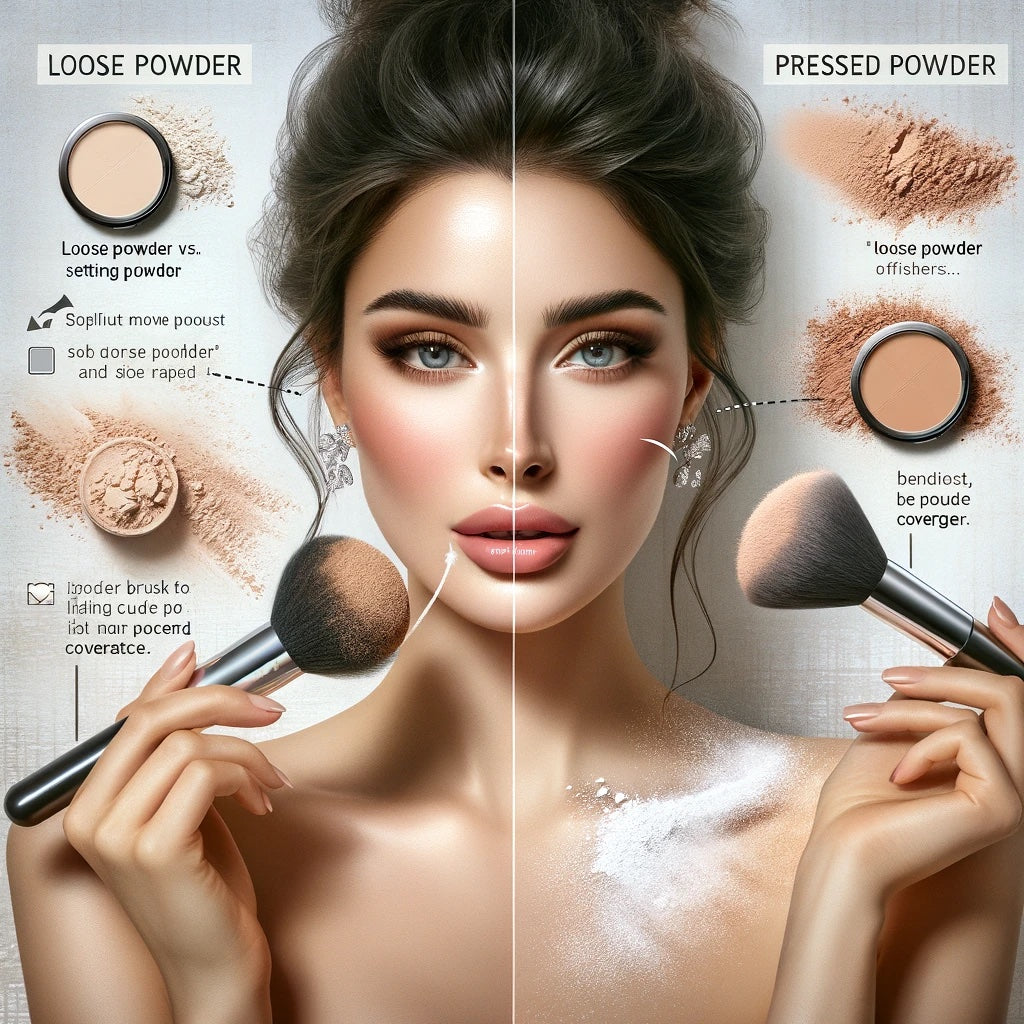The Art of Refrigeration: Preserving Your Makeup’s Longevity and Performance
Related Articles: The Art of Refrigeration: Preserving Your Makeup’s Longevity and Performance
Introduction
With great pleasure, we will explore the intriguing topic related to The Art of Refrigeration: Preserving Your Makeup’s Longevity and Performance. Let’s weave interesting information and offer fresh perspectives to the readers.
Table of Content
The Art of Refrigeration: Preserving Your Makeup’s Longevity and Performance

The world of cosmetics is a vibrant and ever-evolving landscape, filled with an array of products designed to enhance our natural beauty. However, just like any other delicate ingredient, makeup requires careful handling to maintain its quality and effectiveness. One often-overlooked aspect of this care is refrigeration, a practice that can significantly extend the shelf life of certain products and enhance their performance.
While not every makeup item benefits from a stint in the refrigerator, understanding which ones do can make a significant difference in your beauty routine. This article delves into the intricacies of makeup refrigeration, exploring the reasons behind this practice and providing a comprehensive guide to the products that stand to gain the most from it.
The Rationale Behind Refrigeration:
The primary reason for refrigerating certain makeup products is to preserve their integrity and prevent the growth of bacteria. Makeup, particularly those containing water-based formulas, can be susceptible to microbial contamination, especially when exposed to warm temperatures and humidity. This contamination can lead to a number of issues, including:
- Changes in Texture and Consistency: Products may become watery, clumpy, or separated, making them difficult to apply and compromising their intended effect.
- Alteration in Color and Scent: The growth of bacteria can alter the color and scent of makeup, making it undesirable for use.
- Skin Irritation and Infections: Contaminated makeup can lead to skin irritation, breakouts, and even infections, particularly for individuals with sensitive skin.
Refrigeration effectively slows down the rate of bacterial growth by creating a cool and dry environment, thereby extending the shelf life of these products and minimizing the risk of contamination.
Which Makeup Products Should Be Refrigerated?
While not all makeup products require refrigeration, certain categories benefit significantly from it. Here is a detailed breakdown of these categories:
1. Liquid Products:
- Foundation: Liquid foundations, especially those containing water or serum, are particularly susceptible to bacterial growth and can quickly degrade in warm temperatures. Refrigeration helps maintain their consistency, preventing them from becoming watery or separating.
- Concealer: Similar to foundation, liquid concealers benefit from refrigeration. This ensures that they remain smooth and blendable, offering consistent coverage.
- Mascara: Mascara is a prime candidate for refrigeration, as its tube can easily harbor bacteria. Refrigeration not only extends its shelf life but also helps maintain its ability to lift and separate lashes.
- Eyeliner: Liquid eyeliners, especially those with a felt tip applicator, can be prone to drying out and becoming clumpy. Refrigeration helps preserve their fluidity and prevent them from hardening.
- Lip Gloss: Lip glosses, particularly those with a high water content, can become sticky or separated at room temperature. Refrigeration helps maintain their smooth, glossy texture.
- Cream Blush: Cream blushes, like their liquid counterparts, can be susceptible to bacterial growth. Refrigeration helps preserve their creamy texture and vibrancy.
2. Products with Natural Ingredients:
- Natural Face Masks: Masks containing natural ingredients like fruits, vegetables, or herbs are highly perishable. Refrigeration helps preserve their freshness and potency, ensuring their effectiveness.
- Essential Oil-Based Products: Products containing essential oils, such as serums or toners, can be prone to oxidation, which can alter their scent and effectiveness. Refrigeration helps prevent this process, preserving their aroma and therapeutic properties.
3. Products with a High Water Content:
- Sheet Masks: Sheet masks are often infused with serums and essences, which contain a high water content. Refrigeration helps preserve their moisture and effectiveness, ensuring a refreshing and hydrating experience.
- Moisturizers: Some moisturizers, particularly those with a light, water-based formula, can benefit from refrigeration. This helps maintain their hydrating properties and prevents them from becoming thick or sticky.
4. Other Products:
- Eye Creams: Eye creams, due to their delicate nature and proximity to sensitive skin, can benefit from refrigeration. This helps maintain their texture and effectiveness, reducing the risk of irritation.
- Serums: Serums, especially those containing potent active ingredients, can be sensitive to heat and light. Refrigeration helps preserve their efficacy and prevent degradation.
FAQs: Demystifying Makeup Refrigeration
1. Can I Refrigerate All Makeup Products?
No, not all makeup products require refrigeration. Powder products, such as eyeshadows, blush, and setting powder, are generally stable at room temperature and do not benefit significantly from refrigeration.
2. What Happens If I Don’t Refrigerate My Makeup?
While not refrigerating makeup may not always lead to immediate issues, it can accelerate the degradation process, leading to changes in texture, color, scent, and ultimately, a decrease in effectiveness.
3. How Long Can I Store Makeup in the Refrigerator?
Refrigeration can extend the shelf life of makeup, but it is not a magic bullet. The exact duration depends on the specific product and its ingredients. However, as a general guideline, refrigerated makeup can last for several months longer than its room temperature counterparts.
4. How Do I Refrigerate Makeup Properly?
- Use a Dedicated Container: Avoid storing makeup directly in the refrigerator, as this can lead to unwanted odors and contamination. Use a dedicated container, such as a makeup bag or drawer organizer, to store your refrigerated products.
- Maintain a Consistent Temperature: The ideal temperature for storing makeup is between 35°F and 40°F (2°C and 4°C). Avoid storing makeup near the freezer compartment, as the fluctuations in temperature can damage the products.
- Keep It Clean: Regularly clean your makeup containers and the dedicated storage space to prevent the growth of bacteria.
5. Can I Freeze Makeup?
Freezing makeup is generally not recommended, as the freezing process can alter its texture and consistency, making it difficult to use.
Tips for Effective Makeup Refrigeration:
- Check the Label: Always refer to the product label for specific storage instructions. Some manufacturers may advise against refrigeration.
- Test Before Applying: Before applying refrigerated makeup, allow it to warm up to room temperature for a few minutes. This will ensure a smoother application and prevent any discomfort.
- Be Mindful of Condensation: When transferring makeup from the refrigerator to room temperature, be mindful of condensation. Allow the products to dry completely before use to avoid introducing moisture into the containers.
- Monitor for Changes: Regularly inspect your refrigerated makeup for any changes in texture, color, or scent. If you notice any signs of degradation, discard the product.
Conclusion:
Refrigeration is a valuable tool in preserving the quality and effectiveness of certain makeup products. By understanding which products benefit most from this practice and following proper storage guidelines, you can ensure that your makeup remains fresh, vibrant, and ready to enhance your natural beauty for longer. Remember, a little extra care can go a long way in maximizing the longevity and performance of your favorite beauty essentials.








Closure
Thus, we hope this article has provided valuable insights into The Art of Refrigeration: Preserving Your Makeup’s Longevity and Performance. We appreciate your attention to our article. See you in our next article!